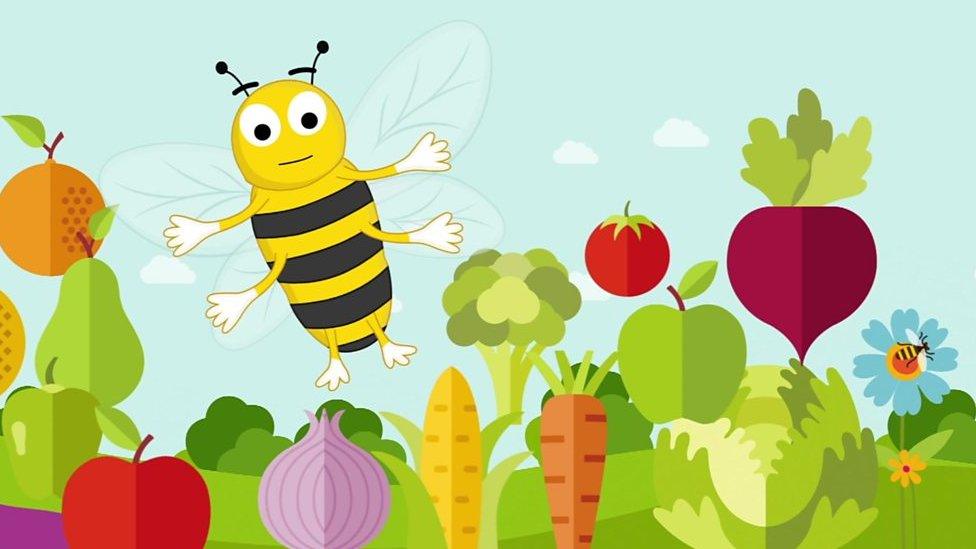Bees can solve puzzles by watching their friends
- Published
- comments
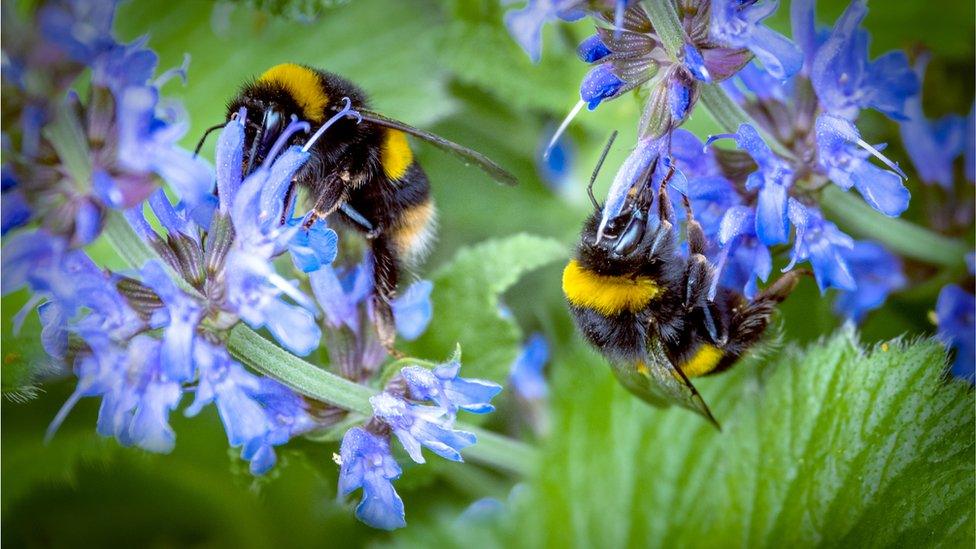
Bees play a really important role in the natural world.
The brightly coloured insects play an important role in the way a lot of the food we eat is grown through both the pollination process and also they make honey.
A new study suggests the tiny creatures also have a very clever skill.
They're able to solve puzzles by watching the more experienced bees in their group.
As part of the study, experts from Queen Mary University of London trained a set of bees to open a puzzle box containing a special reward and the insects then passed on this knowledge to other bees in their colonies.
The puzzle box was created so it could be opened by rotating a lid to access a sugar solution.
Pushing a red tab caused the lid to rotate clockwise, while a blue tab made it go counter-clockwise.
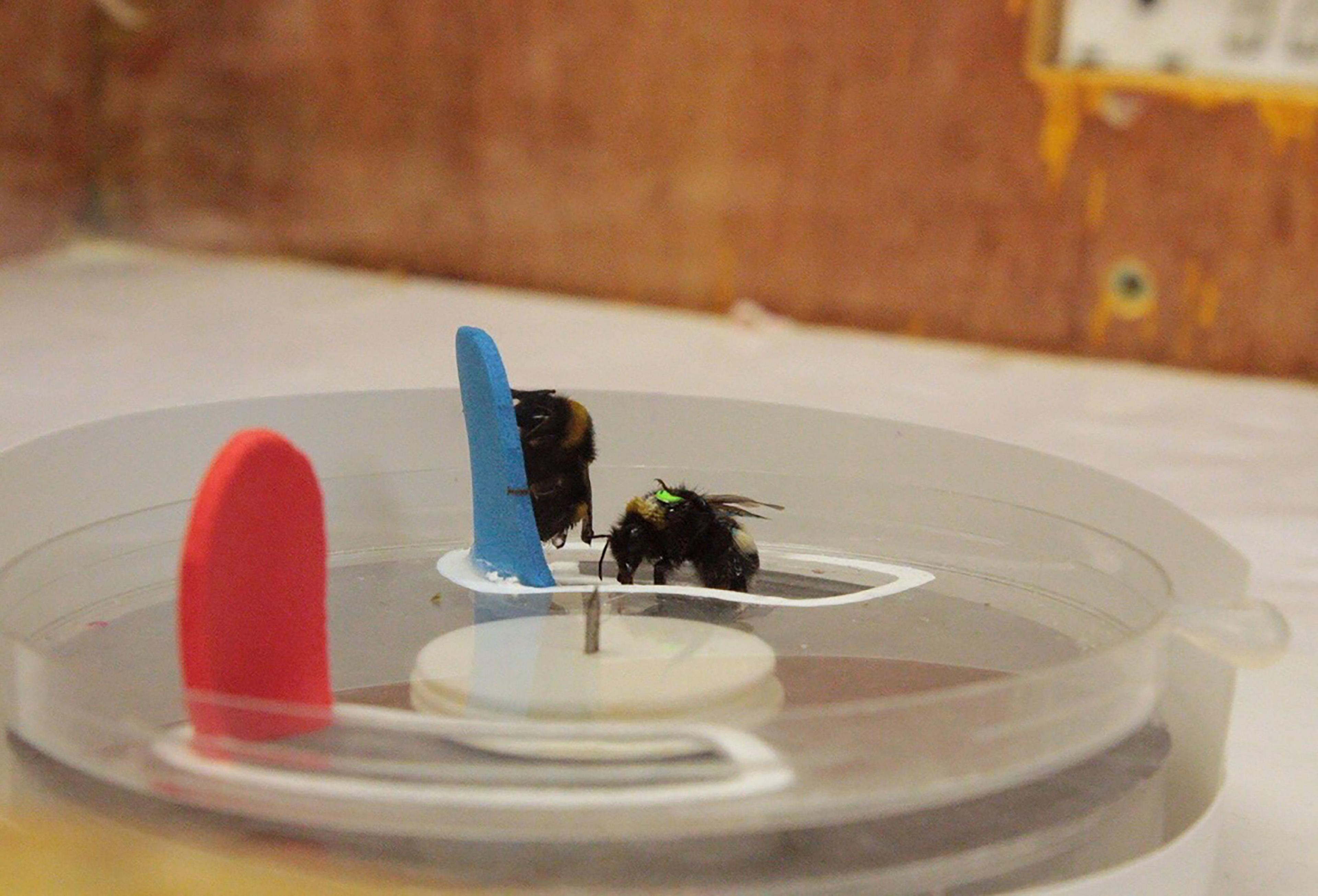
The bees were trained to push two coloured tabs
The researchers trained "demonstrator" bees to use one of these two methods to open the lid while the "observer" bees watched.
When the observers had a go at the puzzle, the researchers found they chose the same method they had seen from the demonstrators 98% of the time, even after discovering the alternative option.
The team also observed that bees with a demonstrator opened more puzzle boxes than control bees who didn't watch the puzzle being tackled first.
According to the researchers, this suggests the bees learned the behaviour socially rather than discovering the solution themselves.
They said their findings provide "strong evidence" that learning by watching their peers can have a big impact on the behaviour of bumblebees.
"In our experiments, we saw the spread and maintenance of a behavioural 'trend' in groups of bumblebees - similar to what has been seen in primates and birds," said Dr Alice Bridges who is the lead author on the study.
Why are bees so important?
In additional experiments where both "blue" and "red" demonstrators were released into the same populations of bees, the observer bees initially learned to use both methods.
However, over time they developed a preference for one solution or the other - which then became the main method of solving the puzzle for that entire colony.
According to the researchers, this shows how a behavioural trend might emerge within the bee population.
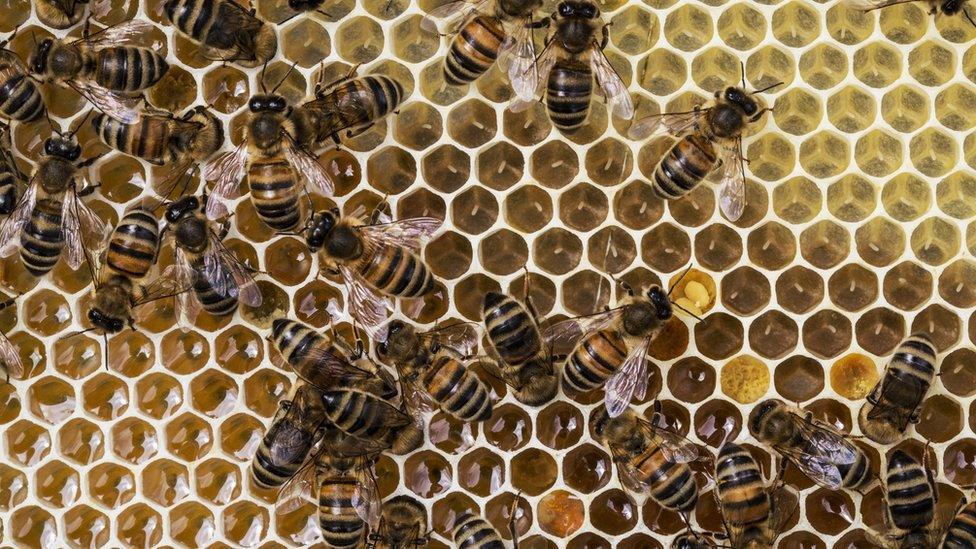
New research suggests bees learn by following behavioural trends, just like other species
The researchers believe this shows any changes in bee behaviour may be the result of more experienced bees retiring and new learners arising, rather than the bees changing their preferences.
"The fact that bees can watch and learn, and then make a habit of that behaviour, adds to the ever-growing body of evidence that they are far smarter creatures than a lot of people give them credit for," said Lars Chittka who is a professor of sensory and behavioural ecology at Queen Mary University of London.
"Our research shows...that new innovations can spread like social media memes through insect colonies, indicating that they can respond to wholly new environmental challenges much faster than by evolutionary changes, which would take many generations to manifest."
- Published20 May 2024
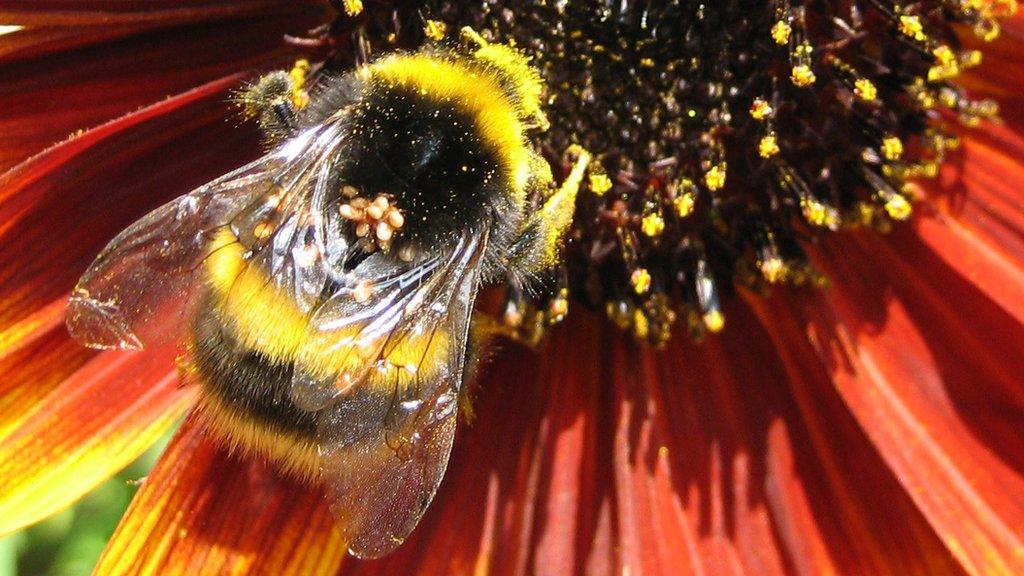
- Published29 April 2020
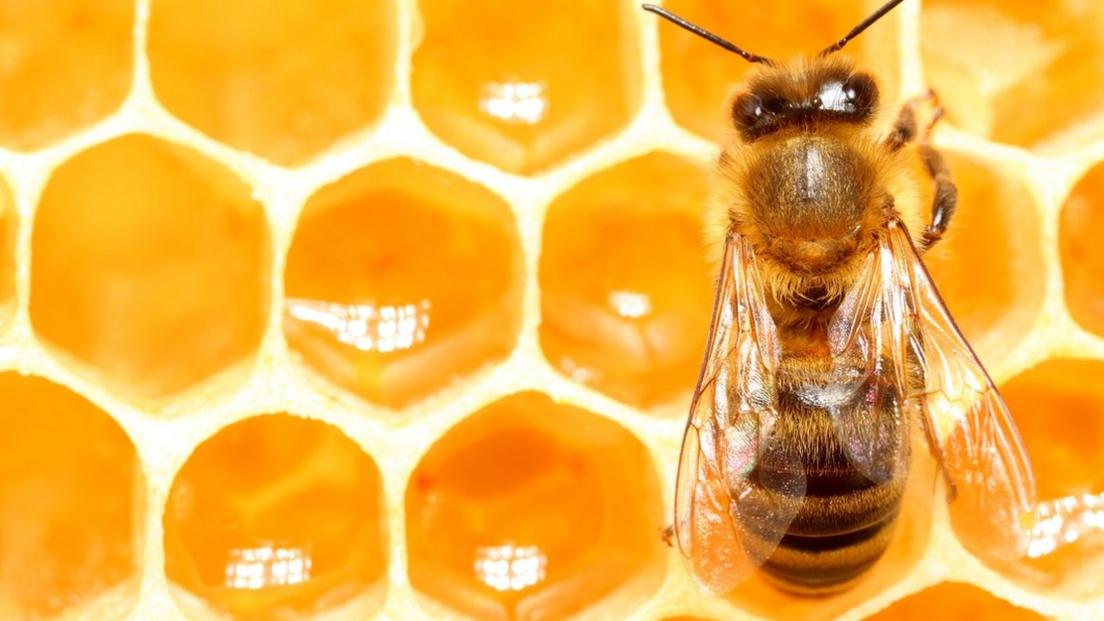
- Published19 May 2020
